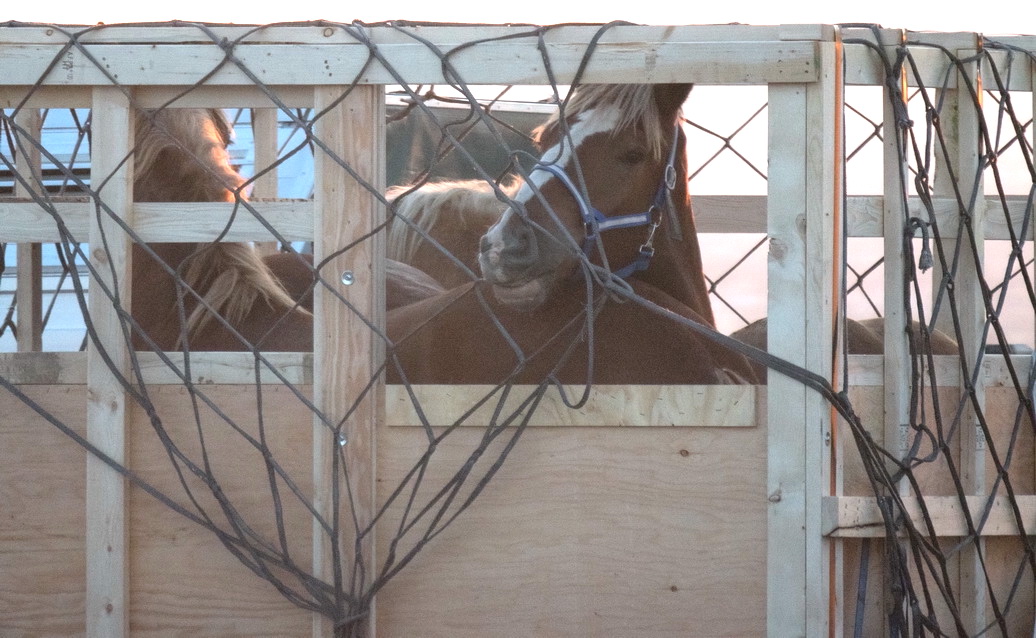Animal Justice successfully laid a charge today at the Winnipeg courthouse against a live horse export company. The charge stems from a shipment of horses sent by Carolyle Farms in Swan River, Manitoba, that exceeded the 28-hour legal time limit for shipping live horses to Japan for slaughter. The flight in question appears to have taken at least 32 hours, and three horses collapsed on the plane. The charge was laid under the federal Health of Animals Regulations, which requires a contingency plan in the event that something goes wrong.
In the early hours of December 12, 2022, Carolyle Farms was arranging a shipment of live horses to be flown from Winnipeg to Kagoshima, Japan, where they would be fattened, slaughtered, and eaten as a raw delicacy. The plane was to stop in Anchorage on the way, but while the loading process was taking place, the company learned that heavy snowfall in Alaska made the planned journey impossible.
Rather than cancelling the flight, Carolyle Farms decided to send the horses to Japan anyway, rerouting the plane even though the multi-hour delay would mean that the horses would be forced to go without food, water, and rest for well over the legal transport limit of 28 hours.

In live horse shipments, large, gentle draft horses are packed tightly together into wooden crates, up to four at a time. Even when the trips stay within the legal time limit, they are incredibly stressful and physically taxing for sensitive horses. Horses can experience injuries and have even died while being flown to Japan for slaughter. Every passing hour increases the risk of harm for these terrified animals.
Animal Justice—along with Winnipeg Humane Society, Canadian Horse Defence Coalition, and Manitoba Animal Save—filed a complaint with the Canadian Food Inspection Agency (CFIA) over the unlawful conduct. After the CFIA refused to take enforcement action, Animal Justice began the months-long process of laying private charges.
After a hearing today, a judge of the Manitoba Provincial Court allowed a charge under the Health of Animals Regulations to be laid, for failing to have a contingency plan in place to respond to delays that could result in animal suffering.
The case is a rare example of a private prosecution, in which a private individual, rather than public authorities, is permitted by the court to lay a charge for an alleged offence. Animal welfare laws are meaningless unless they’re enforced, and today marks a pivotal moment in seeking justice for animals and holding abusers accountable when the government refuses to prosecute.
Next, the charge will be further considered by the courts. Join our mailing list to stay up to date on the case, and for ways you can support Animal Justice’s mission for animal protection.
Banner: Canadian Horse Defence Coalition
